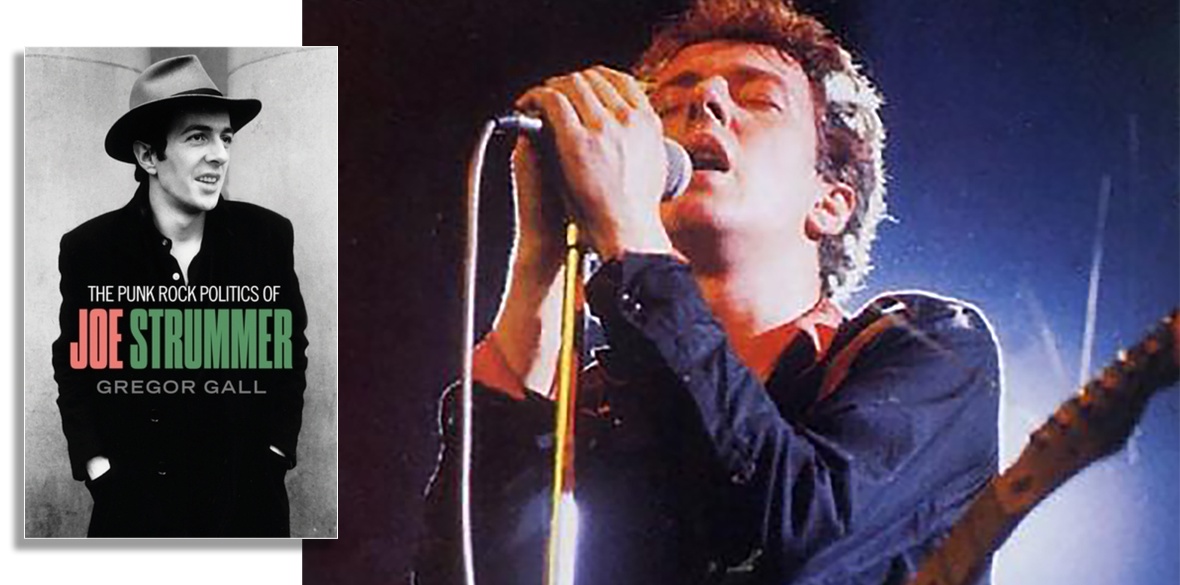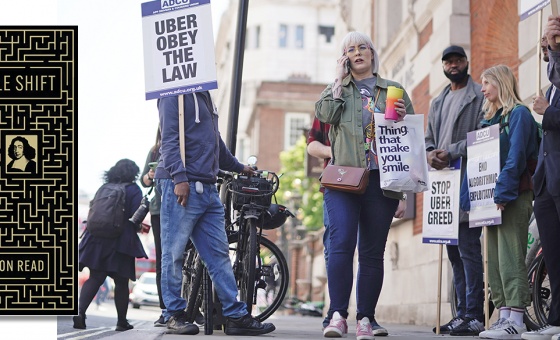This is the last article you can read this month
You can read more article this month
You can read more articles this month
Sorry your limit is up for this month
Reset on:
Please help support the Morning Star by subscribing here
JOE STRUMMER, leader and lyricist for The Clash, died nearly 20 years ago. But his progressive political legacy lives on not just in his lyrics and what he said and did but, critically, in what he showed the left was possible.
Strummer showed us that culture can be consciously constructed in order to be used by the left to progress its own agenda.
He understood that most people come to an interest in – and commitment to – left-wing politics through life experiences and the influence of others – not a result of locking themselves away in their bedrooms to read volumes 1-3 of Das Kapital or by attending political meetings.
Strummer was able to use music as a form of common culture to convey radical and progressive ideas, calling upon people not only to embody such ideas but also to do something about them.
He understood that the mass of youth at the time were not interested in the likes of painting or poetry – film and television mattered not much more. He understood that most are into music – and its association with clothes and style – because it attracts and animates them.
Consequently, music is a key battleground for the left to contest if it wants to not just relate to but also win over youth and wider layers of people. His perspective here is as true today as it was back then in the 1970s and 1980s.
Strummer believed music could neither be left to the meaningless platitudes about love, loss, yearning and broken hearts nor espousals of crass individualism, materialism and hedonism.
Directly or indirectly, these forms and style of music meant that the status quo and then Thatcherism were not challenged or, even worse, were supported.
Instead, Strummer wrote lyrics about the experiences of unemployment and poor housing before moving on to tackle racism, deindustrialisation, militarism, imperialism and sometimes capitalism itself.
So, while he reminded people of certain “home truths” and empathised with the poor and downtrodden, he also went further and discharged both barrels against the rich and powerful, showing them up for the pursuit of their own narrow vested interests at the expense of the many.
Critically, he understood that the lyrics of a song could not only quickly and effectively convey big ideas but could do so with powerful, heartfelt emotion – especially when the music was also compelling. He also suggested “don’t just get angry – get even” on the likes of White Riot (1977) and Working for the Clampdown (1979).
Such songs helped open up the eyes of many by lifting their gaze from their immediate surroundings and experiences to broader issues in the wider world, allowing people to educate themselves in order to make the necessary connections.
In an age before the internet, the likes of Spanish Bombs (1979) and Washington Bullets (1980) propelled many a youth either to ask awkward questions of their teachers at school or sent them scurrying to the local library to find out more about the Spanish Civil War or the Sandinistas in Nicaragua. Songs such as these are a softer, easier and more inviting way into developing a critical and radical worldview than reading any heavy and dusty tome.
This became clear from taking testimony from over one hundred people of different ages, genders and countries for the book. Most were activists in unions, community campaigns and left-wing parties – Strummer was able to not only educate but also inspire people to become left-wing.
Though he never again matched the popular platform that he created for himself and his ideas in The Clash, his subsequent bands – The Latino Rockabilly War and The Mescaleros – did carry on with the angry rebellious spirit of The Clash in many ways.
Strummer himself moved away from overt socialism in the 1980s to a hippy kind of humanism in the 1990s as a result of his disillusionment with the left’s ability to mount an effective fightback against neoliberalism.
He was so appalled and angered by the authoritarianism of Blair and “new” Labour that he argued for a form of ethical, decentralised, small-scale capitalism because he said “the pound in your pocket” was the only vote you actually had any more.
It did not mean that he junked entirely his earlier radicalism as he continued to offer support to those fighting back. Indeed, his last ever London show was a benefit gig for the then striking firefighters in 2002.
Through researching what Strummer’s politics were and what impact they had and continue to have upon many, many people, it seems obvious that the left needs not only to promote existing bands and artists today that critique capitalism from a left or socialist perspective.
But the left also needs to think about specifically constructing its own cultural cadres to fight the ideological battle in the war of culture.
As the costs of making music and making it accessible to others outside of conventional capitalist companies are now much lower than they ever were, this is a considerable opportunity.
Gregor Gall’s The punk rock politics of Joe Strummer: Radicalism, resistance and rebellion is published by Manchester University Press on June 28, price £16.99 and is available to pre-order from https://manchesteruniversitypress.co.uk/9781526148988/











